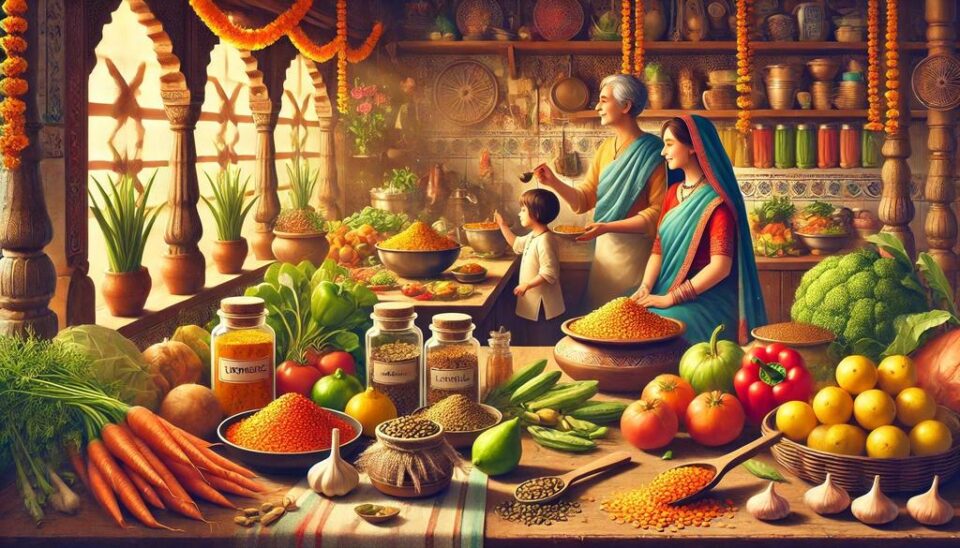In our quest for a longer and healthier life, we often look to the wisdom of different cultures around the world. Each culture has unique practices and traditions that contribute to well-being and longevity. By examining these diverse approaches, we can uncover valuable strategies to enhance our own lifestyles.
Introduction: Discovering Global Practices for Lasting Wellness
This article explores seven time-tested secrets from various regions, including dietary habits, lifestyle choices, and mental well-being practices. From the Mediterranean diet rich in fresh ingredients to the importance of social ties in Latin America, these insights can inspire meaningful changes in our daily lives.
By adopting elements from these global wellness traditions, we have the opportunity to cultivate a healthier, more fulfilling lifestyle. Join us as we delve into these practices that promise not just longevity but a balanced and vibrant approach to living well. Through this exploration, we aim to equip you with actionable tools to improve your overall health and well-being.
1) Mediterranean Diet (Greece and Italy)
The Mediterranean diet, prominent in Greece and Italy, represents more than just a way of eating. It is a holistic lifestyle. At the center of this diet are fresh vegetables, fruits, whole grains, nuts, and legumes, paired with olive oil, which provides healthy fats essential for the body.
Fish and poultry make up the primary sources of protein, offering a rich array of nutrients. Red meat is consumed less frequently, emphasizing plant-based sources more often. You’ll find a wide variety of herbs and spices, which not only enhance flavor but also offer antioxidants with potential health benefits.
Meals in Mediterranean cultures are about more than nourishment. They focus on social interaction and enjoyment. Sharing meals with family and friends fosters community and connection. Wine, consumed in moderation and usually during meals, is another component associated with this lifestyle.
Including this diet in your life can lead to numerous health benefits linked to longevity. Studies suggest it may reduce the risk of cardiovascular diseases and contribute to longer life expectancy. Adopting this way of eating might offer you both physical benefits and the joy of a communal, satisfying meal culture.
2) Pu Erh Tea (China)
Pu erh tea, a type of fermented tea originating from the Yunnan province in China, has been treasured for centuries. Known for its rich, earthy flavor, it’s more than just a beverage; it’s an essential part of local tradition and a potential contributor to longevity.
Drinking pu erh tea can be a daily ritual that promotes well-being. The fermentation process enhances its polyphenol content, which may aid digestion and promote gut health. This might help maintain overall vitality, which is an appealing addition to any health-conscious lifestyle.
Adding pu erh tea to your diet is straightforward. You simply steep the leaves in hot water and enjoy the unique taste it offers. As part of a mindful daily practice, it encourages not only physical health but also moments of relaxation and reflection.
Integrating this cultural practice brings the added benefit of connecting with age-old wisdom. As you enjoy your cup of pu erh, you partake in a tradition that has been associated with balance and longevity across generations. Indulge in the experience, which may inspire a deeper appreciation for life’s simple pleasures.

3) Ikigai (Japan)
Ikigai is a Japanese concept that translates to “reason for being” and plays a vital role in promoting longevity. This philosophy encourages you to find a balance between passion, profession, mission, and vocation. Embracing your ikigai can lead to a life filled with purpose and satisfaction.
In Okinawa, Japan, known for its high concentration of centenarians, ikigai is deeply integrated into daily life. It provides a sense of purpose that contributes to both mental and physical health. Engaging in activities that bring joy and meaning can reduce stress and promote overall well-being.
To add ikigai into your life, start by identifying what you love and what you are good at. Reflect on what the world needs and what you can be paid for. This self-reflection can help you pursue a fulfilling life and support long-term health and happiness.
4) Physical Activity (Scandinavia)
Scandinavia offers a blueprint for integrating physical activity into daily life, enhancing both body and mind. In countries like Norway, Sweden, and Denmark, regular exercise is a cultural norm rather than an obligation. It’s common to see people cycling to work, emphasizing how movement is naturally embedded in routine.
Embrace the concept of friluftsliv, which means “open-air living.” This Scandinavian mindset encourages spending time outdoors regardless of the weather, fostering a deep connection with nature while staying active. Taking frequent walks or hikes promotes a calm yet invigorating lifestyle.
Integrate Nordic walking into your exercise regimen. This popular Scandinavian activity uses poles to give a full-body workout with minimal strain. It’s accessible to all ages and fitness levels and can be a fun way to explore local parks or trails.
Consider engaging in winter sports. In Scandinavia, skiing and ice skating are beloved pastimes during the colder months. These activities are not just enjoyable but also excellent cardiovascular exercises that keep you fit and energized throughout the year.

5) Plant-based Diets (India)
Adopting a plant-based diet is a core component of traditional Indian lifestyles, offering numerous benefits for longevity. Many Indian dishes emphasize vegetables, legumes, grains, and spices. This diverse diet ensures you receive essential nutrients from natural sources.
In India, the use of legumes, such as lentils and chickpeas, provides a rich source of protein. These foods are often cooked with various spices like turmeric and cumin, which not only enhance flavor but also add health benefits. Turmeric, for instance, contains curcumin, known for its anti-inflammatory properties.
Fruits and vegetables are staples in Indian diets, contributing vitamins and antioxidants necessary for maintaining health. You might find that adding local vegetables like okra, eggplant, and spinach can diversify your meals while supporting your body’s needs.
Herbs and spices are integral elements of Indian cuisine. They not only provide rich and varied tastes but also have medicinal properties. Including fresh herbs like basil and cilantro can not only improve the taste of your meals but also offer additional health benefits.
Trying Indian-style plant-based meals can be a delicious way to embrace a healthier lifestyle. It offers a unique blend of taste and nutrition, providing a practical, flavorful approach to supporting your well-being.
6) Siestas (Spain)
In Spain, the tradition of taking a siesta after lunch is cherished. This short afternoon nap, usually lasting 20-30 minutes, offers several health benefits. You might find that including a siesta in your routine can enhance your alertness and improve your mood.
Siestas align with the natural lull in energy levels that many experience in the early afternoon. Instead of reaching for an extra cup of coffee, consider a brief nap to recharge. This practice can be part of a sustainable lifestyle, promoting restful sleep and reducing stress.
Research suggests that regular napping can lower the risk of heart-related issues. Taking time to rest gives your body a chance to recover from daily demands. With Spain’s warm weather, siestas also provide relief from the heat during the hottest part of the day.
Adopting this culturally rich tradition could enhance your personal well-being. Adjusting your schedule to include a short afternoon rest might seem unusual at first. Yet, this small change could bring big rewards in terms of energy and longevity.

7) Social Connections (Latin America)
In Latin America, social connections play a vital role in promoting longevity. The region’s cultures emphasize strong family ties and community bonds. These connections offer emotional support, reduce stress, and enhance mental health.
Families in Latin America often live close to one another, creating supportive environments where multiple generations interact daily. This cohesion ensures that individuals feel valued and secure. Celebrations and gatherings offer regular opportunities for social interaction.
Community life is rich with social events, festivals, and communal activities. Such environments encourage people to maintain active social lives, which contributes to overall well-being. Friendships and neighborhood networks become key components of daily life.
Fostering personal relationships can improve your well-being, promote happiness, and potentially increase your lifespan. Learning from the close-knit communities of Latin America highlights the significant impact social connections can have on your life.

Integrating Global Wellness Practices for a Healthier Life
Exploring longevity practices from diverse cultures offers valuable insights that can enrich our daily lives. By incorporating elements from the Mediterranean diet, such as fresh produce and healthy fats, you can enjoy meals that support heart health and foster connection. Drinking pu erh tea can become a mindful ritual that enhances digestion and promotes vitality. Embracing the Japanese concept of ikigai encourages individuals to pursue their passions, boosting both mental health and life satisfaction.
Additionally, adopting a physically active lifestyle inspired by Scandinavian traditions can help maintain fitness and promote a strong connection to nature. Following a plant-based diet, as emphasized in Indian culture, provides essential nutrients while introducing a range of flavorful dishes. Finally, incorporating siestas into your daily routine and nurturing social connections, as seen in Latin America, can significantly enhance your overall well-being.
By thoughtfully integrating these practices into your life, you can create a balanced and fulfilling routine that supports both longevity and happiness. Emphasizing a holistic approach to health—encompassing nutrition, mental well-being, physical activity, and meaningful relationships—can lead not only to an increased quality of life but also to a longer, healthier existence. Start small, explore these traditions, and discover which practices resonate with you as you embark on your journey toward enhanced health and well-being.




